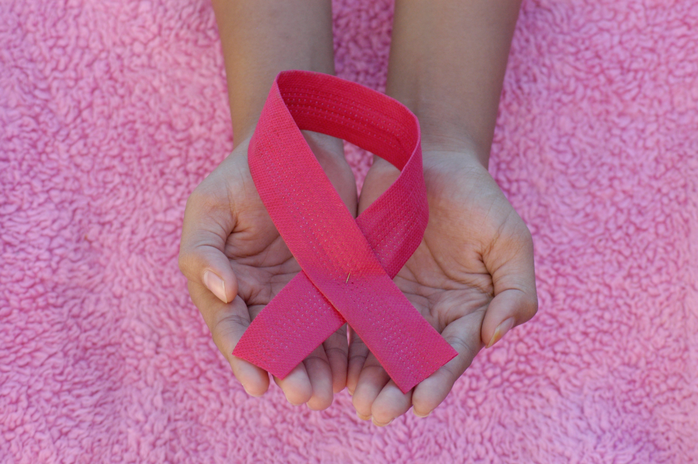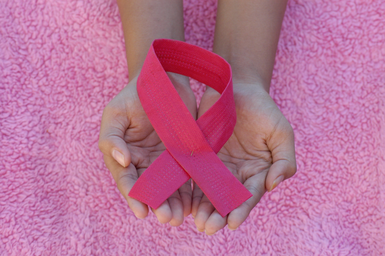Living with breast cancer doesn’t end with remission. My Aunt Cathy Ann is a survivor. Her story started with a diagnosis, followed by surgery, treatments, and eventually remission, but it is not over — and it might never be. After remission, her journey back to “normalcy” wasn’t as planned. Never truly reaching that “normal” feeling again, she continued to battle complications.
Surviving breast cancer is so much more than the pain, suffering, and indescribable fear that only breast cancer patients who endure it can explain. We need to talk about more than just the chemotherapy and disease; we need to talk about what happens when a woman with breast cancer thinks they can finally call it “over.”
The Battle Before the War
Most stories of breast cancer start with a diagnosis, just like Cathy Ann’s. After her yearly mammogram, she was called back for further testing. Unimaginable fear arose and was met with a diagnosis of stage one breast cancer. A month later, it developed into stage three.
Six years ago, my aunt was forced to drop everything and fight to live. Through her battle, she was blessed with a wonderful support system, specifically her daughter. When I called to talk to her about her journey, she told me that there were days when “you just want to give up.” Instead, she looked around and told herself, “You just gotta keep going” for her family.
Biweekly “Red-Devil” chemo, which is the worst and most aggressive, and almost an entire month straight of radiation led to being down for the entirety of the week, then being forced to do it again. What really drove her to push through the devastating days of constantly feeling sick was her grandfather. Our beloved “Papa” passed away from cancer in 2011, but he was an inspiration to all. Cathy Ann, my own inspiration, decided that if he, in his later years, could go through treatment, she was meant to as well.
Remission Isn’t the End
For most patients, remission is the finish line that they have hoped and prayed to reach for months or even years. This is exactly what Cathy Ann thought it would be for her. However, like many patients, it sadly was not. It is so important to talk about life after remission, and how the journey is never over.
Our prayers came true when Cathy Ann was announced to be in remission. She soon received a double mastectomy and had implants put in immediately after. What she told me, though, was that she never would have gotten the implants if she knew she didn’t really need them.
For many women, losing their breast(s) can be heartbreaking; it is a sign of femininity and self in most cases. “I didn’t wanna look down and not see them,” she told me. However, Cathy Ann now knows that the physical cost of her surgery greatly outweighed the reality of no longer having her breasts.
Her body rejected the implants, so a year after they were put in, they were taken out; a year of drainage tubes and healing met only with the need to take a step backward. What unknowingly remained were the capsules from the implants that her doctors had forgotten to remove. Knowing there was something wrong with her body, but not being able to pin the cause, she consulted her doctor.
She was met with assurance that everything was okay and there was no need to worry, saying the swelling was simply the implant — but she had had these taken out a year earlier. As a result, she endured an infection and had hanging tubes put in after her second surgery to remove the forgotten capsules.
This wasn’t the end of her suffering. The fluid that built up in her chest due to the infection from the capsules resulted in the need for an infectious disease doctor. Imagine battling years of breast cancer and countless doctor visits, only to be told you need to see an infectious disease doctor. Heartbreak and fear took over.
From Woman to Woman
I finally asked, “What is your advice to other women, with or without breast cancer?”
Cathy Ann’s response: “Listen to your body.”
This was a point that she made sure to stress the most — listening to yourself. If you think there is a problem, then there probably is, and you need to go consult a professional. This may have saved her life because of the complications she had with her implant surgery. One issue that women may face is the inability to perform self-examinations and see signs to go to their gynecologist if they have large breasts. She says this is something to keep in mind.
Cathy Ann argued that women should get mammograms earlier on in life, specifically at the start of development, in order to prevent cases like hers and to never miss an appointment. She also mentioned how grateful she was for her support system, and how vital it was for her survival. However, we know that not all people are as blessed in this area. When I asked for her recommendation for this issue, she advised to find support systems that are already out there, because they are there.
As an intake coordinator for hospice, she works closely with professionals in palliative care. However, she didn’t even realize just how vital they were to her survival, and neither do many other people battling cancer. Palliative care is for treating symptoms of serious illnesses, and caretakers are incredibly supportive.
Something not many people know is that when lymph nodes are removed in order to continue with treatment, whatever side they are taken from can never be used to draw blood, take blood pressure, or get shots. This is yet another after-effect of survival.
Her advice to other cancer patients is simply to eat Lemonheads and ginger candies. She told me that something nobody talks about is that because of treatments, cancer patients often have a “terrible metal taste” that constantly consumes their mouths. Eating these candies helps subside the taste. She also recommends using plastic utensils and plates in place of metal options, in order to not make the taste worse.
While Cathy Ann is a survivor, she lives in constant fear of relapse. She said that every patient with cancer that she has ever seen in her job in hospice has had their cancer come back in a different form. Questions like “Why me?” and “What did I do to deserve this?” take over your mind when you have cancer, and rightfully so.
Breast cancer is so much more than just a physical battle. She didn’t deserve it — no one does. So get a mammogram, support fighters, and never stop checking in on those who have cancer, even if they are in remission. Their fight is likely far from over.
Want to see more HCFSU? Be sure to like us on Facebook and follow us on Instagram, Twitter, TikTok, and Pinterest!


